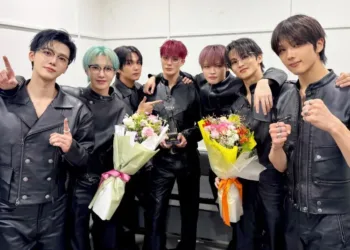In a shocking turn of events, popular YouTuber and influencer Ranveer Allahbadia, better known as BeerBiceps, finds himself at the center of a storm that has captivated the nation. The Supreme Court’s recent intervention in the case has sent ripples through the content creation community, raising questions about the limits of free speech and the responsibilities of social media influencers.

Table of Contents
Who is Ranveer Allahbadia?
Before diving into the controversy, let’s take a moment to understand who Ranveer Allahbadia is. Born on June 2, 1993, in Mumbai, Allahbadia has become a household name in the digital space. Despite coming from a family of medical professionals, he chose to pursue engineering at Dwarkadas J. Sanghvi College of Engineering. However, his true calling lay elsewhere.
Allahbadia’s journey to stardom began with fitness and cooking content on YouTube. Over time, he evolved into a self-development and lifestyle guru, launching The Ranveer Show podcast in 2019. His interviews with notable personalities like Priyanka Chopra and Saif Ali Khan catapulted him to new heights of fame. With over 12 million followers across various platforms, Allahbadia has built an empire that includes:

- Co-founding Monk Entertainment, a talent management company
- Founding Big BrainCo
- Creating Level Supermind
His estimated net worth of approximately Rs 60 crore is a testament to his success in the digital realm.
The Controversial Incident
The latest Ranveer Allahbadia news has sent shockwaves through the influencer community. The controversy stems from an episode of “India’s Got Latent” aired on November 14, 2024. During the show, Allahbadia made what many consider to be highly inappropriate remarks, including a vulgar joke about watching parents engage in sexual activity.
The backlash was swift and severe:
- Multiple FIRs were filed across Maharashtra, Assam, and Rajasthan
- All episode content was removed from YouTube
- Public outrage spread like wildfire across social media platforms

The India’s Got Latent controversy began with a distasteful joke about parents, but it quickly escalated into a national debate about the responsibilities of content creators and the limits of humor.
Inside the Ranveer Allahbadia Supreme Court Case
The Ranveer Allahbadia Supreme Court case highlights the legal risks for content creators. On February 18, 2025, the Supreme Court delivered a scathing rebuke to Allahbadia, with Justice Surya Kant and Justice N Kotiswar Singh presiding over the case.
The court’s observations were particularly harsh:
- “If this is not obscene, then what is?”
- “There is something dirty in his mind that has been vomited on a YouTube show”
The bench emphasized that freedom of speech doesn’t grant the license to make derogatory remarks, setting a precedent that could have far-reaching implications for content creators across India.
Legal Restrictions Imposed
The Supreme Court’s ruling included several key restrictions:
- A ban on Allahbadia participating in any shows
- Mandatory deposit of his passport with Thane police
- Requirement for court permission for international travel
- Interim protection from arrest
These measures underscore the seriousness with which the court views the matter, balancing the need for accountability with the %protection of individual rights.
Public and Media Reaction
The fallout from the controversy has been significant:
- Widespread condemnation across social media platforms
- Loss of approximately 2 million YouTube subscribers
- A public apology from Allahbadia acknowledging the insensitive nature of his remarks
Many fans expressed disappointment, while critics argued that the incident highlighted a broader issue of responsibility in content creation. The debate has sparked discussions about the need for greater awareness and sensitivity among influencers.

Implications for Content Creators
The Ranveer Allahbadia controversy has broader implications for the content creation landscape in India:
- Increased Scrutiny: Content creators may face heightened scrutiny from both the public and legal authorities.
- Self-Regulation: The incident may lead to more stringent self-regulation within the influencer community.
- Legal Awareness: There’s a growing need for content creators to be aware of legal boundaries and societal norms.
- Platform Responsibility: Questions have been raised about the role of platforms like YouTube in monitoring and regulating content.
The case has also reignited debates about government regulation of online content and the balance between creative freedom and social responsibility.
Current Status and Future Outlook
As of now, the Ranveer Allahbadia Supreme Court case remains ongoing. The situation continues to evolve, with:
- Ongoing investigations into multiple FIRs
- Requirement for Allahbadia’s cooperation with authorities
- Continued court supervision of the case

The controversy serves as a stark reminder of the power and responsibility that comes with a large online following. It has sparked important conversations about the nature of content creation, the limits of humor, and the role of influencers in shaping societal norms.
As we move forward, it’s clear that the Ranveer Allahbadia case will have lasting implications for the content creation landscape in India. It serves as a cautionary tale for aspiring influencers and a wake-up call for established ones, emphasizing the need for thoughtful, responsible content that respects societal values while pushing creative boundaries.
The digital world is watching closely as this case unfolds, potentially setting new precedents for the future of online content creation in India and beyond.
FAQ
How much do BeerBiceps earn per month?
His monthly earnings come from various sources including YouTube revenue, brand deals, podcasts, and business ventures, and the income from this is said to be around ₹35 lakh. Allahbadia, who started his BeerBiceps YouTube channel in 2014, now has a total of 7 shows. He earns about ₹8–10 lakh per month from ads.
Read More- Tere Ishk Mein: Dhanush and Kriti’s Passionate Love Saga Shooting Begins








